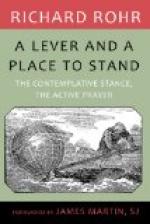When he first heard that she had instituted divorce proceedings his anger returned, and he determined to hold her to the unwelcome bonds if for nothing else than to know that she still suffered; but a consultation with an attorney showed him the futility of any defence, so he simply held this up against her as another affront to be wiped out if the time ever came which gave him the opportunity.
But he had long since given up all hope that this time would ever come. During the years which had elapsed he had drifted from one city to another, each time taking a stand a degree lower than the preceding. In New Orleans he had succeeded in getting a little better living than heretofore, so he had settled down there with the idea of making it a permanency.
It was a welcome break in the monotony for him to receive a call from Levy’s agent, and the fact that the visitor felt inclined to provide liquid refreshment of a grade considerably higher than he had been able to indulge himself in for many years did not detract from his welcome. As the evening wore on he was quite willing—almost eager—to tell the story of his life to this agreeable and sympathetic listener, so Levy had been materially assisted in the preliminary investigation of his case. Nor was the welcome any less cordial when the agent appeared for a second time, on this occasion offering Buckner five hundred dollars in exchange for his “time and trouble.” He was given no intimation regarding the nature of his errand; he really had little curiosity. It was enough that it paid what was now to him a princely sum, and also guaranteed him an attractive experience at some one else’s expense.
On his arrival Levy gave Buckner a welcome which raised his self-esteem almost to the bursting-point. A box of costly cigars and a decanter of fine brandy close at his elbow appeared to him as the height of hospitality, as one gentleman would extend it to another. And when he found that his new host manifested even as deep an interest in his previous life as his earlier friend who had provided the money, he was prepared to reciprocate in every way that lay in his power.
With the preliminary acquaintance thus happily and firmly established, Levy opened up for business.
“In this suit for divorce which your wife brought,” he asked, “the summons was never served on you, was it?”
“Why, yes,” Buckner replied, slowly refilling his glass from the decanter; “it was served on me by a man named Murray, at Colorado Springs.”
“Oh, dear; oh, dear!” groaned Levy, with a mixture of pathos and incredulity, “what an unfortunate memory you have! There was no one else in Colorado Springs who knew about it, I presume?”
“Not there,” Buckner answered; “I sent the paper to a lawyer in Denver named Jennings.”
“But there was no correspondence between you?”
“Yes; there were two or three letters.”
“Where is Jennings now?”




